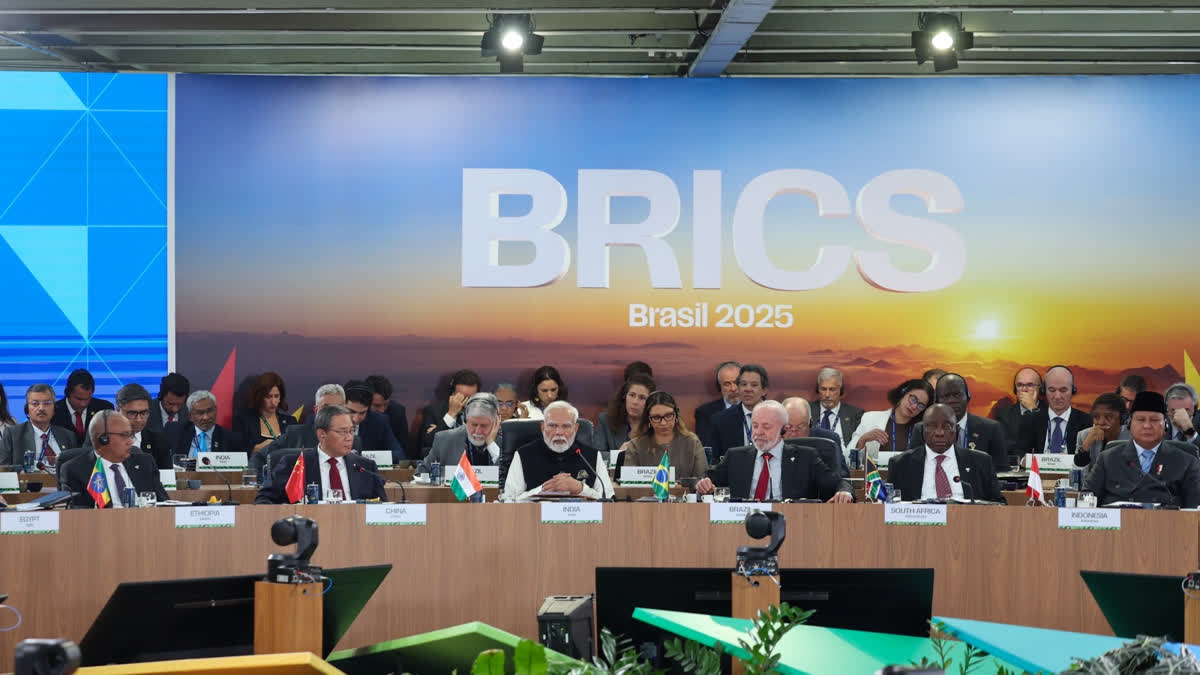
BRICS Leaders Condemn Pahalgam Terror Attack: A Firm Global Stance Against Terrorism
CLAT 2026 | Environmental Law, Data Ethics & Institutional Accountability | CLAT Gurukul Current Affairs Series
Introduction
At the recent BRICS Summit held in Rio de Janeiro, global leaders of Brazil, Russia, India, China, and South Africa collectively issued a strong condemnation of the terror attack in Pahalgam, Jammu & Kashmir, which occurred on April 22, 2025. The attack had claimed the lives of 26 Indian citizens. The declaration reinforced the bloc’s zero-tolerance policy toward terrorism, while also subtly pointing to the need for accountability concerning cross-border terror, widely interpreted as a reference to Pakistan.
This development becomes a critical point of study for CLAT 2026 aspirants under international relations, India’s foreign policy, and global security frameworks. The Pahalgam Declaration is a powerful diplomatic moment emphasizing India’s growing role in international counterterrorism diplomacy.
Why in News?
- The Pahalgam terror attack of April 22, 2025, triggered a wave of international criticism.
- BRICS used its platform to unanimously condemn terrorism and reaffirm commitment to global peace and security.
- It underscores India’s increasing clout in shaping global security narratives.
Point-wise Summary of the Article
- Event Background:
- BRICS summit was held in Rio de Janeiro, Brazil.
- A joint declaration was released on July 6, 2025.
- Pahalgam Terror Attack Reference:
- The attack occurred in Jammu and Kashmir on April 22, 2025.
- 26 civilians were killed in the cross-border terror act.
- BRICS leaders condemned the incident in “the strongest terms.”
- India’s Position:
- PM Modi stated it was a direct attack on the “soul, identity, and dignity of India.”
- Urged the international community to adopt a zero-tolerance approach to terrorism.
- Subtle Reference to Pakistan:
- The declaration avoided naming countries but highlighted cross-border terrorism, financing, and safe havens — widely understood as implicating Pakistan.
- Call for Unified Global Response:
- Stressed combating terrorism in all forms and manifestations.
- Emphasized rejecting double standards in tackling terrorism.
- Diplomatic Unity Among BRICS:
- All five member states endorsed the declaration.
- Aimed at showing solidarity with India and pushing for global norms against terrorism.
- Strategic Implications:
- India’s global diplomacy gains a boost as it garners multilateral support.
- Pushes for international accountability in dealing with terrorism.
- Policy Alignment and Recommendations:
- Encouraged sanctions on entities or nations supporting terror.
- Sought to isolate terrorism sponsors diplomatically.
Explanation of Peculiar Terms
- BRICS: An acronym for five major emerging national economies — Brazil, Russia, India, China, and South Africa.
- Cross-border terrorism: Terrorism that is planned, supported, or originates from across national borders.
- Pahalgam: A town in Jammu & Kashmir, a frequent target due to its strategic and symbolic importance.
- Zero Tolerance: A strict policy or stance against certain actions with no exceptions.
- Double Standards: Applying different sets of principles for similar situations; often used in international diplomacy to critique inconsistency.
Importance for CLAT 2026 Aspirants
- This topic is important for Current Affairs, Legal Reasoning, and International Relations-based Comprehension Passages.
- Aspirants should focus on:
- India’s stance on terrorism in international forums.
- Diplomatic implications of multilateral groupings like BRICS.
- Legal frameworks on terrorism and India’s national security law.




